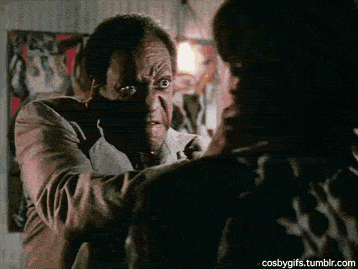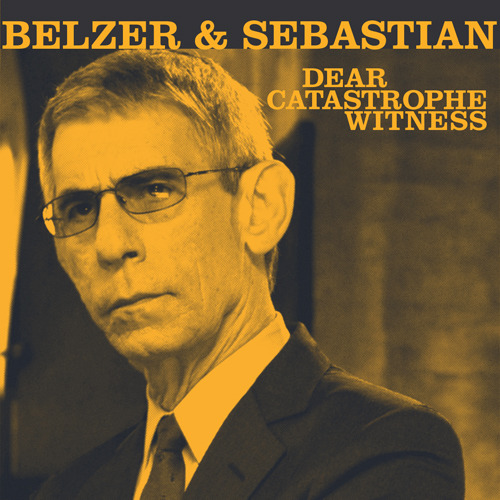The present hysteria is not a necessary or inevitable condition of life; it’s something we’ve chosen, if only by our acquiescence to it. Not long ago I Skyped with a friend who was driven out of the city by high rent and now has an artist’s residency in a small town in the south of France. She described herself as happy and relaxed for the first time in years. She still gets her work done, but it doesn’t consume her entire day and brain. She says it feels like college — she has a big circle of friends who all go out to the cafe together every night. She has a boyfriend again. (She once ruefully summarized dating in New York: “Everyone’s too busy and everyone thinks they can do better.”) What she had mistakenly assumed was her personality — driven, cranky, anxious and sad — turned out to be a deformative effect of her environment. It’s not as if any of us wants to live like this, any more than any one person wants to be part of a traffic jam or stadium trampling or the hierarchy of cruelty in high school — it’s something we collectively force one another to do.The Busy Trap
Busyness serves as a kind of existential reassurance, a hedge against emptiness; obviously your life cannot possibly be silly or trivial or meaningless if you are so busy, completely booked, in demand every hour of the day. I once knew a woman who interned at a magazine where she wasn’t allowed to take lunch hours out, lest she be urgently needed for some reason. This was an entertainment magazine whose raison d’être was obviated when “menu” buttons appeared on remotes, so it’s hard to see this pretense of indispensability as anything other than a form of institutional self-delusion. More and more people in this country no longer make or do anything tangible; if your job wasn’t performed by a cat or a boa constrictor in a Richard Scarry book I’m not sure I believe it’s necessary. I can’t help but wonder whether all this histrionic exhaustion isn’t a way of covering up the fact that most of what we do doesn’t matter.
Tuesday, July 31, 2012
Busy-ness
Saturday, July 28, 2012
Friday, July 27, 2012
Friday links
1. Classic movies in miniature style
2. Awwwwwww
3. Political parties chart
Update! 4. Cryptocat article
2. Awwwwwww
3. Political parties chart
Update! 4. Cryptocat article
Wednesday, July 25, 2012
Tuesday, July 24, 2012
Monday, July 23, 2012
Order and state power
The Star Wars prequels, whatever their failings in other respects, dramatise the corporatist dynamic rather well. Their central plot concerns a civil war between two factions — one the central galactic government led by Chancellor Palpatine, and the other a collection of corporate interests (the Trade Federation, the Commerce Guild, the Banking Clan) led by Count Dooku. But while Palpatine’s and Dooku’s interests are by no means harmonious (each attempts to stab the other in the back, and one eventually succeeds), they are actually in collusion with each other for the most part, and the civil war is largely a hoax whereby each partner seeks to aggrandise his own side, and thereby the partnership as a whole, by portraying the other partner as a bogey (as when Palpatine invokes the need to defend the Republic against Dooku’s pseudo-rebellion as an excuse for claiming expanded powers for himself).Invisible Hands and Incantations: The Mystification of State Power
But the Palpatine-Dooku partnership is a conspiracy; and to the extent that the libertarian analysis of corporatism resembles the plot of the Star Wars prequels, it might thus seem to be a conspiracy theory, which is surely the opposite of an analysis in terms of invisible-hand mechanisms. Or even if “conspiracy” is not quite the right word (since conspiracy implies secrecy, while much of the collusion between the governmental and corporate elites is done quite in the open, as for example in the case of corporate interests’ publicly lobbying and campaigning for the supposedly anti-big-business regulations of the Progressive Era), still it may be wondered what role there could be for spontaneous order in libertarian class analysis.
Saturday, July 21, 2012
3E Presents: Cosby Week
William Cosby (1690–1736) served as the British royal governor of New York from 1732 to 1736.William Cosby
During his short term as governor, Cosby was portrayed as one of the most oppressive royal placeholders in British Colonial America. In 1735, Cosby accused publisher John Peter Zenger of sedition and libel for publishing unflattering reports about Cosby. In spite of Cosby's efforts, Zenger was acquitted of all charges and the case helped to establish the concept of freedom of the press.
Friday, July 20, 2012
3E Presents: Cosby Week
People putting their clothes on backward: Isn't that a sign of something gone wrong? ... People with their hats on backward, pants down around the crack, isn't that a sign of something, or are you waiting for Jesus to pull his pants up? Isn't it a sign of something when she has her dress all the way up ... and got all type of needles (piercing) going through her body? What part of Africa did this come from? We are not Africans. Those people are not Africans; they don't know a ... thing about Africa.Bill Cosby Can't Say That, Can He?
Thursday, July 19, 2012
3E Presents: Cosby Week
Last month, Bill Cosby broke the unwritten rule of keeping black dirty laundry in black washing machines. While at a multiracial gala dinner in Washington, D.C. commemorating the 50th Anniversary of the Brown v. Board of Education decision, Cosby targeted under-educated lower-income blacks as the source of various social problems. Among his comments: "People marched and were hit in the face with rocks to get an education, and now we've got these knuckleheads walking around...the lower economic people are not holding up their end of the deal. These people are not parenting." And he mocked the way some blacks name their children: "With names like Shaniqua, Taliqua and Mohammed and all that crap, and all of them are in jail....They are standing on the corner and they can't speak English." Let's hope Fantasia Barrino, Shaquille O'Neal and Muhammad Ali never see a transcript of Cosby's comments.What Bill Cosby Should Be Saying
Wednesday, July 18, 2012
3E Presents: Cosby Week
Harry Lillis "Bing" C[...]osby (May 3, 1903 – October 14, 1977) was an American singer and actor. C[...]osby's trademark bass-baritone voice made him one of the best-selling recording artists of the 20th century, with over half a billion records in circulation.Bing Cosby
A multimedia star, from 1934 to 1954 Bing C[...]osby was a leader in record sales, radio ratings and motion picture grosses. His early career coincided with technical recording innovations; this allowed him to develop a laid-back, intimate singing style that influenced many of the popular male singers who followed him, including Perry Como, Frank Sinatra, and Dean Martin. Yank magazine recognized C[...]osby as the person who had done the most for American G.I. morale during World War II and, during his peak years, around 1948, polls declared him the "most admired man alive," ahead of Jackie Robinson and Pope Pius XII. Also in 1948, the Music Digest estimated that C[...]osby recordings filled more than half of the 80,000 weekly hours allocated to recorded radio music.[8]
3E Presents: Cosby Week
It’s heady stuff, especially coming from the man white America remembers as a sitcom star and affable pitchman for E. F. Hutton, Kodak, and Jell-O Pudding Pops. And Cosby’s race-based crusade is particularly jarring now. Across the country, as black politics has become more professionalized, the rhetoric of race is giving way to the rhetoric of standards and results. Newark’s young Ivy League–educated mayor, Cory Booker, ran for office promising competence and crime reduction, as did Washington’s mayor, Adrian Fenty. Indeed, we are now enjoying a moment of national self-congratulation over racial progress, with a black man running for president as the very realization of King’s dream. Barack Obama defied efforts by the Clinton campaign to pigeonhole him as a “black” candidate, casting himself instead as the symbol of a society that has moved beyond lazy categories of race.This Is How We Lost the White Man
Tuesday, July 17, 2012
3E Presents: Cosby Week
Rita Cosby (born November 18, 1964, Brooklyn, New York) is a television news anchor and correspondent, radio host, and best selling author. She is currently a Special Correspondent for the CBS syndicated program Inside Edition, specializing in interviewing newsmakers and political figures. Cosby has received three Emmy Awards, the Jack Anderson Award for investigative excellence, the Matrix Award, the Ellis Island Medal of Honor, and the Lech Walesa Freedom Award.[1] October 11, 2010, was declared "Rita Cosby Day" in the State of New York for her “extraordinary journalism and exemplary service on behalf of her community.”[2]Rita Cosby
3E Presents: Cosby Week
It's his Blame-the-Poor Tour. He should pick on someone in his own class. If he had come out swinging at Condi Rice or Colin Powell, they could defend themselves. But he's beating up on poor black people, the most vulnerable people in this nation. And why jump on them?Bill Cosby's Not Funny
Monday, July 16, 2012
3E Presents: Cosby Week
In the last decade, legendary comedian, film and television star Bill Cosby has transformed himself from America's dad into a cultural critic determined to whip black America into shape. It started with what is now known as the "pound cake" speech, an address he gave in 2004 at an NAACP ceremony to commemorate the 50th anniversary of the Brown v Board of Education US supreme court decision. Cosby took the time to chastise black Americans for what he viewed as failures, including the use of Ebonics, the number of single-parent households, wasteful spending and conspicuous consumption, and certain sartorial choices.Bill Cosby's erasure of race from the Trayvon Martin case
Bill Cosby believes guns are no laughing matter, and are the real reason Tayvon Martin was killed.Bill Cosby on Trayvon Martin case: Neighborhood watchmen shouldn't carry guns
3E Presents: Cosby Week
William Henry "Bill" Cosby, Jr. (born July 12, 1937) is an American comedian, actor, author, television producer, educator, musician and activist. A veteran stand-up performer, he got his start at various clubs, then landed a starring role in the 1960s action show, I Spy. He later starred in his own series, the situation comedy The Bill Cosby Show. He was one of the major characters on the children's television series The Electric Company for its first two seasons, and created the educational cartoon comedy series Fat Albert and the Cosby Kids, about a group of young friends growing up in the city. Cosby has also acted in a number of films.Bill Cosby
Saturday, July 14, 2012
Friday, July 13, 2012
Friday links
1. YOU CHOSE WRONG
2. Pants and horses
3. DJ TRex
4. Clam eating salt on a table, too creepy to embed
5. I didn't even know this song had a name.
2. Pants and horses
3. DJ TRex
4. Clam eating salt on a table, too creepy to embed
5. I didn't even know this song had a name.
Thursday, July 12, 2012
Wednesday, July 11, 2012
State names
Before Europeans landed on American shores, the upper stretches of the Alabama River in present-day Alabama used to be the home lands of a Native American tribe called – drum roll, please – the Alabama (Albaamaha in their own tribal language). The river and the state both take their names from the tribe, that’s clear enough, but the meaning of the name was another matter. Despite a wealth of recorded encounters with the tribe – Hernando de Soto was the first to make contact with them, followed by other Spanish, French and British explorers and settlers (who referred to the tribe, variously, as the Albama, Alebamon, Alibama, Alibamou, Alibamon, Alabamu, Allibamou, Alibamo and Alibamu) – there are no explanations of the name’s meaning in the accounts of early explorers, so if the Europeans asked, they don’t appear to have gotten an answer. An un-bylined article in the July 27, 1842 edition of the Jacksonville Republican put forth the idea that the word meant “here we rest.” Alexander Beaufort Meek, who served as the Attorney General of Alabama, Assistant Secretary of the U.S. Treasury and the President of the First American Chess Congress, popularized this theory in his writings throughout the next decade.
Maine is another case where no one is quite sure how the name came about. Ferdinando Gorges and John Mason, who received a charter for land in Maine, were both English Royal Navy veterans, and the name may have originated with the sailors differentiating “the mainland” from the many islands off the state’s coast. Maine’s state legislature, meanwhile, passed a resolution in 2001 that established Franco-American Day and claimed that the state was named after the French province of Maine.How All 50 States Got Their Names
Monday, July 09, 2012
Friday, July 06, 2012
Thursday, July 05, 2012
Tuesday, July 03, 2012
Monday, July 02, 2012
Writers in Hollywood and TV
Ten years ago, Nix might never have had the opportunity to create his own distinctive world, populated by a colorful assortment of sleuths and sleazeballs. TV was still a closed-off culture, largely presided over by network behemoths who rarely gave even the best writers — think David Chase or Matthew Weiner — the freedom to push the envelope until they'd spent years laboring in the salt mines.The Big Picture
Now it's a new ballgame. Cable TV is crammed with original series that are bursting at the seams with the kind of creative bravado that hasn't been seen in Hollywood since the early 1970s. If you're looking for great storytelling, the real action is on your TV set, not at the multiplex.
The origins of this trend can be traced to the decline of network television and its one-size-fits-all model. Once a dusty repository for old movies and second-run network shows, cable now has an insatiable desire for original programming. The splurge on new programming was inspired by increased competition from pay TV outlets like HBO — which had created a huge splash with "Sex and the City"and "The Sopranos"— as well as the loss of once reliable network reruns, whose value had plummeted. Unlike reruns or reality shows, original programming also generates additional revenue from DVD sales and Netflix licensing.
The hunger for fresh material also came at a time when Hollywood was increasingly obsessed with creating Big Event franchises, and abandoning the kind of sophisticated dramas and comedies that have hit pay dirt on cable. The rise of new media has also helped cable replicate the communal experience of moviegoing, with TV show devotees turning television viewing into a participatory experience, spending endless hours sharing their enthusiasm, outrage or puzzlement over various plot twists on blogs, Twitter feeds and elsewhere in cyberspace.
Subscribe to:
Comments (Atom)












